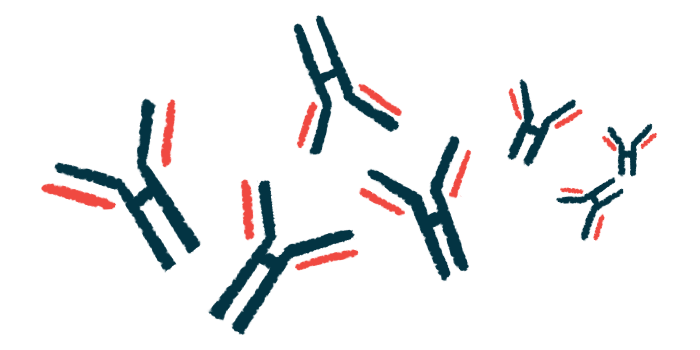Gut microbiome tied to therapy response in recurrent ovarian cancer
Trial finds best responders had ‘abundant’ bacteria favorable to immunotherapy
Written by |

A person’s microbiome, or the collection of all microorganisms that live in the gut, can enhance the body’s antitumor response and lead to better treatment outcomes, a clinical study in people with recurrent forms of ovarian cancer found.
The investigator-initiated trial evaluated a combination of different drugs, including an immunotherapy, in 40 patients, many with a mean of more than three previous chemotherapy lines. Most, 95%, showed a response to the combo therapy, achieving either a complete or partial response or stable disease.
“There is a significant unmet need for effective, long-lasting treatments that also maintain a good quality of life (QoL) for patients with recurrent disease,” the team, led by scientists at Roswell Park Cancer Institute in New York, wrote.
Findings were detailed in the study, “Integrative multi-omics analysis uncovers tumor-immune-gut axis influencing immunotherapy outcomes in ovarian cancer,” published in Nature Communications.
Treatment responses 2 to 3 times better than usual for recurrent ovarian cancer
The Phase 2 clinical trial (NCT02853318) evaluated the combination of Keytruda (pembrolizumab), bevacizumab (sold as Avastin, among others), and cyclophosphamide (sold as Cytoxan and generics).
Keytruda is an immunotherapy, a type of medicine that triggers the immune system to attack cancer cells. Bevacizumab is a targeted therapy designed to specifically target changes in cancer cells that these cells use to survive and replicate uncontrollably, and cyclophosphamide is a type of chemotherapy, a large class of medications that work in different ways to stop cancer cells from growing.
All 40 patients, with a mean age of 62.2, received the combination treatment. The study’s main goal was to measure progression-free survival, the length of time they live after treatment without worsening disease.
Results showed nearly half (47.5%) had an objective response, essentially meaning that their tumors got smaller in response to the therapy. Among patients without an objective response, almost all had stable disease — meaning their tumor didn’t get any bigger, even if it didn’t shrink.
The median progression-free survival time was 10.2 months. To put that in perspective, the expected progression-free survival time for ovarian cancer patients given a second line of chemotherapy is usually four months or less. As such, “these results represent a 2 to 3 times improvement compared to the average [progression-free survival time] typically observed in similar trials involving this patient demographic,” the researchers wrote.
“Our clinical trial showed a significant improvement in objective response rates (ORR) and PFS [progression-free survival] with this triple combination therapy,” they added. “Notably, 30% of the patients with a clinical benefit to the treatment achieved a durable response exceeding 12 months while maintaining an excellent QoL.”
Gut microbiome differed between people with limited and durable responses
Using data from the trial, the researchers conducted a battery of analyses looking for differences between patients with shorter and longer progression-free survival times. They found that those who responded better to the these therapy tended to have more active immune cells in the area around their tumors.
Patients with a better response also showed certain alterations in the gut microbiome, the communities of bacteria that make their home in the human digestive system. Differences also were found in levels of certain bacteria-made molecules known to influence the activity of immune cells.
In fecal samples from patients with a limited or durable response to the therapy, “we found several species associated with [a limited response], like Enterococcus faecalis and Clostridium perfringens, which have been previously associated with resistance to immunotherapy” the scientists wrote. “Conversely, we identified several highly abundant species in [durable responders], like Intestinimonas butyriciproducens and Anaerotignum propionicum (Clostridium propionicum), highly consistent with prior reports suggesting these … bacteria are associated with enhanced response to immunotherapy.”
Putting these data together, the researchers proposed that a so-called tumor-immune-gut axis — involving the tumor itself, immune cells, and bacteria in the intestines — all may interact to influence how ovarian cancer responds to treatment. If that’s the case, then it may be possible to look at these different factors, and identify in advance those patients who are most likely to benefit from this type of treatment, the researchers said.
“We hypothesized that the gut microbiome and its related metabolic environment, which can be modified, might impact the [ovarian cancer] tumor’s immune environment, affecting the response,” they wrote. “This idea is primarily informed by prior research identifying links between the gut microbiome and varying responses to chemotherapy, immune modulation, and metabolic alterations.”
Scientists suggested that it might be possible to use interventions targeting gut bacteria, such as probiotics, to make cancer immunotherapies more effective. They stressed, however, that further studies are needed to validate these ideas.
“These findings bring us closer to making meaningful advances for women battling recurrent ovarian cancer,” Emese Zsiros, MD, PhD, a senior study author and chair of gynecologic oncology at Roswell Park, said in a center news release. “They not only enhance our understanding of the tumor-immune-gut axis but also open up exciting possibilities for new therapeutic strategies.”




